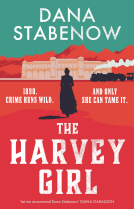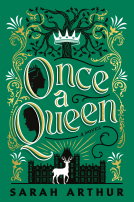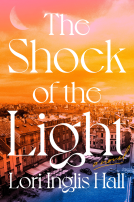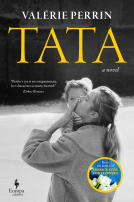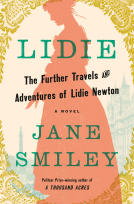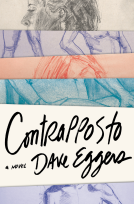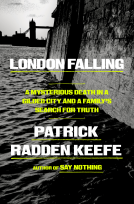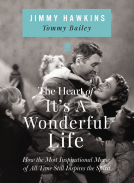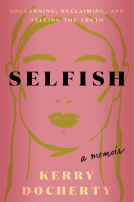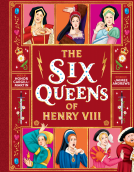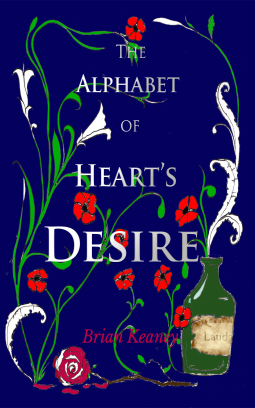
The Alphabet of Heart's Desire
by Brian Keaney
This title was previously available on NetGalley and is now archived.
Send NetGalley books directly to your Kindle or Kindle app
1
To read on a Kindle or Kindle app, please add kindle@netgalley.com as an approved email address to receive files in your Amazon account. Click here for step-by-step instructions.
2
Also find your Kindle email address within your Amazon account, and enter it here.
Pub Date Jun 01 2018 | Archive Date Jul 03 2020
Description
A Note From the Publisher
"A talented writer. I admire his seriousness of purpose." Philip Pullman
COMPARABLE TITLES
The Crimson Petal and the White - Michel Faber
Fingersmith - Sarah Waters
Slammerkin - Emma Donohue
The Observations – Jane Harris
Advance Praise
It is the wit that really draws you in. Despite the grim background and the sometimes horrific detail, the writing is vivid and buoyant, the research and the detail impressive. I was gripped. Katharine McMahon, author of The Rose of Sebastopol, The Woman In The Picture, etc.
The Alphabet of Heart's Desire imagines three utterly different lives, and weaves them through the brutal, vibrant world of early 19th century London to make an atmospheric, shocking and satisfying story. Emma Darwin, author of The Mathematics of Love and Alchemy
Marketing Plan
PLEASE NOTE: This book is published in the UK on 16th November 2017 and in the US on 1st June 2018.
PLEASE NOTE: This book is published in the UK on 16th November 2017 and in the US on 1st June 2018.
Available Editions
| EDITION | Other Format |
| ISBN | 9781910688373 |
| PRICE | CA$19.99 (CAD) |
| PAGES | 392 |
Average rating from 81 members
Featured Reviews
 Christina E, Reviewer
Christina E, Reviewer
The Alphabet of Heart's Desire is a fantastic piece of historical fiction primarily set in Victorian London. In it, author Brian Keaney paints a vivid picture of three very different lives: that of a young woman struggling to survive as a prostitute, a captured Asian slave adjusting to an entire new way of life, and an imagining of the earlier days of poet Thomas De Quincey.
The chapters rotate between these three main characters, providing a quick and even flow to the story line. As the plot progressed, the lives of the characters intersected as well as becoming inextricably linked - some with final resolution and some without.
The book had many beautifully written passages describing various sensations and sights on the streets of London - the smells, the sounds, the faces, the clothing. He brought the past to life without succumbing to the habit of over-describing, as many historical fiction writers tend to do.
Fictionalising the life of a well known literary character can often come across as amateurish, but I felt that Keaney did Thomas De Quincey justice. His treatment of laudanum as the invisible, unofficial main character of the novel showed how a well educated man such as De Quincey could develop such a strong addiction to the drug. It seems like an entirely plausible backstory to the life of the poet.
My only complaint is that the book felt a little short, although that could be attributed to the fact that I loved it so much that I couldn't put it down.
Many thanks to Netgalley and the book's publisher, Holland House, for providing me with an ARC.
Why couldn't this book be longer?
"The Alphabet of Heart's Desire" is a splendid piece of historical fiction following the youth of Thomas de Quincey--yes, he of "Confessions of an English Opium Eater"--Anne, and Tuah, other young people living in the raw world of East London in the early 19th century. Anyone who loves finely wrought lit fic in a historical setting will be all in on this story which is completely engrossing. The last page came as a complete surprise to me--I was so ready for more!
What a treat!
 Marialyce W, Reviewer
Marialyce W, Reviewer
There is a reason I love historical fiction so much. In this genre one often learns things never known before.
The time is 1802 and a young man Thomas de Quincy is coming into adulthood. He had led a comfortable life in a severe family that tolerated little deviations on what they thought Thomas' life should be. Thomas is desirous of attending Oxford but his mother and uncle feel differently and set Thomas up with a teacher of low caliber. Thomas revolts and through an error in judgement is banished from his life of comfort, literally living on the streets with one pound a month given to him by her "generous" family.
One day, from lack of food, Thomas collapses on the street. He is found by a young doxy and she takes it upon herself to nurse Thomas back to health.
Anne, the young prostitute who helps Thomas, later falls in love with him and he with her. Of course this is London in the seventeenth century and that relationship can or should never be. We also meet Tuah, a former slave saved and bought by a captain of a ship returning to London and is taken into the captain and later his brother's home and freed. All three of these characters are presented in alternate chapters each relating their experiences and portraying to the reader the differences in their upbringing, their lives, and how society sees them. The saddest one of all is Anne, left to make her way, which in reality is the only way possible for her and becomes a prostitute. She is the one that there seems no possible escape from a harsh and cruel world. Even if she does escape she knows she is doomed because of what she has become. To cope she begins using opium and introduces Thomas to the level of escapism opium provides. These three lives intertwine and present to the reader a fine glimpse of the life one experienced in Victorian England.
Thomas de Quincey later goes on to be a well respected writer and in his book Confessions of an English Opium Eater, he explored the manners, the boredom, the passion and hopelessness oftentimes presented in Victorian life.
For those who love historical fiction, this novel was a treat and gave the reader perspective, fine writing, and ultimately a greater understanding of what life was like if one was a Victorian.
Thank you to NetGalley and Holland House for an ARC of this book.
 Faith H, Reviewer
Faith H, Reviewer
This is beautifully written historical fiction with three captivating protagonists and some engaging minor characters. The book is very descriptive and there is a real sense of the period and atmosphere. It is loosely based on the early life of the British author Thomas De Quincey and the story is told in alternating chapters by Thomas, Anne (his first love) and Tuah (who was invented by the author for this book). The three characters are about the same age and the author follows them from their childhoods. The characters are linked by opium, literature and the fact that each has been cast adrift. My only problem with this book is the title, which makes sense in context but unfortunately sounds vaguely like a cheesy romance novel. There is love in this book but it is not a romance novel.
Thomas was an aspiring poet from a wealthy family but, after being sent to a series of dreary households, he wound up on his own and destitute in London. "...Thomas De Quincey was singularly unprepared for the teeming, villainous, bustling, cunning barbarity that was the nation of London."
Anne and her widowed mother lived in a run down room that they couldn't afford. "Down in the basement there was a collection of thieves that would have taken the steam off your piss and sold it back to you as a cure for scurvy." And then their landlord offered them someplace even lower, provided that they worked as washerwomen. Life kept going from bad to worse for Anne and she wound up in a brothel. Eventually she rescued Thomas and they shared love and laudanum.
Tuah was an orphan taken when he was 9 by Dutch slave traders from his village on an unspecified island. On the slave ship he learned "... a great and terrible truth, that it matters not how bad things seem to be, there is always worse that can be for a man." He was sold to a ship captain, who taught him English, and remained on the ship for three years before they landed in London.
I loved each of these characters and enjoyed this book tremendously. I would be happy to read more by this author.
I received a free copy of this book from the publisher.
Thomas De Quincey became an overnight sensation with the publication of his autobiography, Confessions of an English Opium-Eater, released in 1821. Wildly received in his day for this racy, seductive thriller, De Quincey was well-connected with friends like Coleridge and Wordsworth, and his life is the basis for Brian Keaney's historical fiction The Alphabet of Heart's Desire. This story is delivered by three young narrators: Tom De Quincey himself, Anne the teenage doxy (prostitute) he credits with saving his life, and Tuah an eventually freed slave. These three characters undergo varying degrees of tumult and tragedy, all equally entertaining and with story arcs that share a very similar pacing.
Keaney is an excellent, imaginative British writer, his descriptions and historic terminology are captivating and witty. I think the entire premise of this book is brilliant, filling in the unknown bits of a scandalous literary hero's shadowy life - but I wish Keaney would have further exploited his artistic license here and come up with more answers to numerous mysteries: what actually killed Thomas's beloved sister? What did their sinister brother allude to when he said "the basis of taxation in Greenhay is obedience, and the chief industry of our little kingdom is death." Why was Thomas kicked out exactly? Who was the letter in French from, was it intended for Thomas or for a different Thomas De Quincey? Who were Mrs. Sedgwick and Mr. Patterson, who got rid of Anne? Why would Thomas never venture back to Archie's, and simply find Anne there? Also what exactly is the Alphabet of Heart's Desire supposed to be? I enjoyed reading this book, I was thoroughly entertained while reading it, but I'm left feeling frustrated afterwards. Apropos of a book about laudanum, I suppose.
 Neha G, Reviewer
Neha G, Reviewer
'The Alphabet of Heart's Desire' is a well-written piece of historical fiction. The outline of this book is drawn with facts taken from the life of Thomas De Quincy, an essayist from 19th century famously known for his work 'Confessions of an Opium-eater', and colored in with the fictional world of Anne and Tuah created by Brian Keaney.
Summary:
Thomas is the prodigal son of De Quincy household and is a scholar but naive at dealings of life. He wants to be a poet. The inability of his family to understand his potential though leaves him to find his own path in life. He ends up sick and miserable.
Anne is a street girl who is abused at the hands of life. One day while looking for customers she finds Thomas collapsed on Oxford street. She takes him in and nurses him back to health. For the first time in their lives, they both find happiness in the love and the laudanum(Opium) they share, no matter the squalor that surrounds them.
Tuah is a freed slave who fails to belong as an Englishman even after adopting the language, the culture and the religion of England.
Beautiful Writing:
The book interleaves the story of these three people and they appear to be as separate from each other as possible. But then the thread of their lives start to entangle and entwine each time their paths cross and create the web in which they find themselves enmeshed.
The narration is beautiful and atmospheric. I found not a single dull moment. It reads so well as fiction, I did not realize until half the book in, that it was about a real person.
The characters are very well developed and I found myself completely vested in their lives, lost in the setting of early 19th century England. I wanted to scream at Thomas at times to man up and do something instead of seething and raging silently.
One particular detail that stood out for me was how the language differed for the three narrations. It was fancy and sophisticated in Thomas’s sections while full of slangs and easy grammar in Anne’s. Phrases from Bible in Tuah’s sections were aptly used.
Misunderstood Genius:
The only thing that Thomas ever wanted was to be a poet and study at Oxford. I wonder, what if his family had understood him better, what if they had let the facade of royalty not interfere with his simple desires? We might have had many more great creations. A genius might not have gotten lost to Opium. It pained me to see such misfortunes could befall a scholar of such caliber.
Wish to Read More:
I wanted to read more of it, especially on following points.
The relation Tuan and Captain McKerrars shared or what drove the captain to opium.
Thomas’s mother, why she was so stern etc.
What really happened to Thomas’s sister and what about his other siblings. Like his brother whom he meets. Could they never help Thomas?
Recommendations:
I recommend this to all fans of Historical Fiction who enjoy traveling back in time to claim a piece of history for themselves or to learn something new, something buried underneath dust and rubble of time.
Thank you NetGalley and the publisher for providing me an ARC of this book.
This is a work of historical fiction focusing on the central character of Thomas De Quincey, an English essayist who lived through England's Regency and Victorian Eras. As I joyously ravished this book over the course of several days, I had no idea I was reading about an actual notable figure, nor whom the main character of the story was...until the very end. This is because each chapter deals with one of three characters: Thomas, Anne and Tuah, and are titled as such. Their individual stories are so lushly and richly written, they could have been a book unto themselves; but, they are deliciously woven together as the book nears its conclusion.
When we meet Thomas, Anne and Tuah they are each on the cusp of their teenage years, and all experience horrific tragedies...enough to cause post traumatic stress disorder in anyone. They have all lost either one or both of their parents and at some point have no idea how they are going to eat, where they can find shelter or earn money to live. Although Thomas was born into an upper class family, his widowed mother was quite a dour and harsh parent. Anne was born into an already poor family, but when her father drowned after an alcoholic binge, the living situation became even more dire. Tuah was abducted from his native home by Dutchmen onto a slave ship that docked in England. Their collective heartbreak, desperation and challenges are both poignant and riveting to read through.
Another common thread binding all three characters are their eventual associations with or consumption of the potent narcotic laudanum (tincture of opium). This drug became popular during these times for those suffering both mental and physical anguish.
I won't divulge any more details to spoil things for potential readers. In summation, this is a book that will whisk you away to historic England, with a very meaningful story and characters that will touch your heart. I award this a rare 5 stars.
The Alphabet of Heart's Desire is a difficult book to rate. There were many things I enjoyed: the distinctive 'voices' of the three main characters, the easy, simple flow of the prose, and the premise. However, although I enjoyed the individual storylines, they didn't come together for me. Thomas and Anne were fine, but Tuah never really seemed to fit, especially since he didn't connect fully with the other two until the end. I think, perhaps, the storytelling was too simplistic for the kind of connection Keaney was trying to achieve. Regardless, this was still a pleasant, quick historical read, so I am giving it four stars. De Quincey is an interesting figure and this work had real potential; it just doesn't quite achieve all its aims.
 Kathleen D, Reviewer
Kathleen D, Reviewer
I’m not trying to make out that I was innocent. You don’t grow up innocent in Limehouse. But I was ignorant. I saw things but I didn’t always know what they meant.
Brian Keaney writes beautifully, the sentences can have you smiling, cringing or gagging in disgust. I felt like I was Anne, stepping over oysters of spit (yuck), choking back the rotten smell of men, forced into a life of prostitution. Anne was by far the best character in this novel, how could Thomas de Quincy not fall in love with her? Anne’s mother is scraping by to keep them alive, but everything just gets more bleak, more so when her mother takes up with a dangerously cruel man, Harold Lampton (who carried his anger around with him everywhere he went, nursing it like a baby and feeding it with little tidbits of grievance,). It isn’t long before he poisons her innocence, and in this world and time, women didn’t have much chance to fight such men. In time, she escapes to a life, while not better, at least one she can be free of Harold. Anne and Thomas live in completely different worlds, Anne makes her living in the underbelly, Thomas is as sheltered and pristine as a proper man should be in the 1800’s. But some mysterious things happen to his own murdered sister, some sort of ‘punishment’ for not obeying? So just how ‘safe’ was his surroundings? Bucking at the life he feels confines him, he is ousted into the streets where Anne comes to his rescue. The London he now finds himself in, with scratching rats and violent strangers is nothing he could ever prepare for. The young man, one day to become a famous author, is a nervous, innocent youth before he falls for Anne. She comes to his rescue one night. Hope against hope they will last, but reality loves nothing better than to separate unfit lovers. Not before she takes the ‘bewildered’ Thomas home and nurses him to health with laudanum. “The cure for every pain and sorrow.” There is a magic in that “angel kiss” of laudanum. That isn’t all she gives him, though. He discovers many delights in Anne. That she could be loved by a poet, a man from a finer world, when she lived with vulgarity all her life, finally loved like a lady and not just a ‘street girl’- could it be? Could it really be?
Tuah is the third character, a slave taken abroad a ship, learning all horrors of man and that things can be worse, even from the pits of hell, there is always worse. He later is sold to a ship captain that becomes his future salvation. Both he and Anne are tied to Archie, a man who once read to Anne after a terrible incident. For Anne, the words do their healing, especially for an uneducated girl like her. Archie is a man of literature, which holds a special magic for Thomas, Tuah and Anne alike. The wheels of fate turn as it throws these three children about, each slaves to different lives, and tosses them into a fractured adulthood.
It isn’t a love story, and it is. While the rot of men and the world steals Anne’s innocence, somehow she still remains pure in some distant way. This was a hell of a novel! There wasn’t a boring moment, and the historical aspect felt genuine. There is no romanticizing about this time period, there is so much grim and grit that you know how bad things were for the unfortunate. I could smell the rot, tremble at the horrors, and warm at any token of kindness tossed Anne’s way. Three narrators delight the reader through the entirety of the novel, which is much like living in their shoes.
Publication Date: November 16, 2017
Holland House
 Leslie G, Book Trade Professional
Leslie G, Book Trade Professional
Normally I don't like novels told in multiple voices but this one works because we move to someone else at just right moment in story, and we also may have the chronology of De Quincey's life in mind .. but even if we don't the almost generic progress of a young aristocrat's waistral life has its own logic .. exchanges among people are accurate and people change .. the young woman Thomas falls for is a survivor and helps him too by her own lights even though it means disappearing. Very convincing portrayals and descriptions of place and difficulties of life with no money in a supportless society. A bit grim throughout but well written with redeeming flashes of life affirmation now and again.
 Denise F, Reviewer
Denise F, Reviewer
I received this as an ARC from Netgalley.
I had never heard of the book or the author but enjoyed this story. It takes places in the early 1800's in England and tells the story of three different characters in rotation. You aren't sure how they will all intersect with each other until almost the end. It felt like an accurate portrayal of what was life across cultures and classes at that time.
I found the book very interesting to read and thought it was well written.
Would recommend this for anyone interested in historical fiction or English fiction.
 Emma M, Reviewer
Emma M, Reviewer
This is a fascinating historical novel which takes in several of the more nefarious trades of Britain in centuries past as part of its plot. Using interwoven bildungsroman narratives, Kearney focuses on the idea that hardship and violence can dog a childhood, wherever you grow up. Anne, growing up in London in terrible poverty, is forced to turn to her own resources in order to survive; Tuah is captured from his unnamed island (he is later called ‘the Malay’ by adults who encounter him) as part of the global slave trade and traded until he reaches London; a young Thomas De Quincey experiences forms of cruelty and neglect peculiar to a harsh upper class English family. In different ways, all three will be involved in some way in the flourishing opium trade. Of course, it is De Quincey who gave us Confessions of an English Opium-Eater (1821), and Kearney has used elements of this long essay as a starting point for the characters of his young Thomas and his relationship with Anne.
One of the initial strengths of this novel is the distinct voices Kearney adopts. This, particularly effective in the early stages of his novel when all three characters are children, becomes less marked as Anne, Tuah and Thomas grow older and their stories begin to merge. But it is at this same point that the links between their stories really start to work and the reader can appreciate the impact of the opium trade and the devastating popularity of laudanum in early Nineteenth Century London. Kearney creates a detailed sense of sensation in his novel, reinforcing the idea that, for many, this potent mixture of opium and alcohol, offered an escape from harsh existences. In a more optimistic vein, reading is also recognised as a means of alleviating or transcending hardship – this is the cultural world which sees the publication of Coleridge’s and Wordsworth’s Lyrical Ballads – but the practical need for survival may sometimes make this feel a cold comfort.
It struck me that whilst this is a historical novel, and Kearney’s closely observed details mean that the reader is fully immersed in his historical London, all of the trades involved are still horribly present in our world today. Kearney’s writing is vivid in its depiction of the terrible violence and cruelty all three protagonists witness and experience as they struggle to survive. Help, for all three, comes from unexpected quarters, but it is usually a fragile security. Everything can be traded and nothing is safe. Indeed, early on, Thomas’ sadistic older brother even tells him, ‘The basis of taxation in Greenhay [the family home] is obedience.’ It’s often an unsettling read but Kearney also brings a warmth to many of his memorable main characters. I heartily recommend it.
The Alphabet of Heart’s Desire is published by Holland House on 16 Nov 2017. Thanks to Netgalley for my ARC.
 Ashley M, Reviewer
Ashley M, Reviewer
The Alphabet of Heart's Desire is a beautiful work of Historical Fiction, First, the cover is absolutely beautiful. But the story is equally so. Loosely based on the British writer Thomas de Quincey, the book follows his early life, as well as two other protagonists, Anne and Tuah. Each story is poignant and captivating. Each protagonist is a person who has essentially been cast aside and are struggling to find their place.
A beautifully tragic story.
The Alphabet of the Hearts DesiRe by Brian Keany is full of heart-aching losses from the past, lonely presents, & hopeless futures in the most beautiful way possible. It is a story that speaks of the one human emotion that we all suffer from regardless of race, creed or social status- it speaks of LONELINESS!
Anne, Thomas & Tuah, all from different backgrounds, but all victims of circumstance , find themselves intertwined in a story together . The cards seemed to keep piling higher & higher against them, as they find themselves living in the streets of London. Every turn in a disappointment, every path leads to loss, but will the succumb to the sadness on the streets or will they push on forward with nowhere to go?
Perhaps it is the loneliness that is the secret language of the hearts desire!
Thomas de Quincey was an English Essayist, best known for his Confessions of an English Opium-Eater. He dreamed of becoming a poet, which he never did. Instead he befriended William Wordsworth – a major English Romantic poet.
Set at the very beginning of the 19th century, this book briefly touches upon his childhood and mostly concentrates on his time living rough, penniless, and his encounter with Anne in Oxford Street and her subsequent disappearance. I wished this book brought more details of his life, but as author mentions he was an opium edict and by no means a reliable source of information.
The story is revealed through three characters in subsequent voices: Thomas, Anne (his first love), and Tuah (fictional character).
After the death of his sister by which he is deeply affected, young Thomas feels very lost. He no longer has a sister who can interpret what their mother tells them. He feels very disconnected with their harsh mother, revealing his delicate nature. As a young man he gets employed by his mother’s friend, Lady Carberry, as library organizer, which is of great interest to Thomas. The arrangement extends to teaching her Ancient Greek as well. This makes him very happy, but then an event occurs and penniless Thomas drifts into the streets of London.
After the death of her father, Anne and her mother struggle to survive. Not only poor conditions, but also her mother’s new partner’s abusiveness leads Anne on a path to search for something hopeful. At the age of 12, she has a lot to learn. Her new path doesn’t exactly take her to a more hopeful future.
Tuah (fictional character) is a black man captured by Dutch men. He becomes captain’s cabin boy. When on land, he lives with captain and his brother Archie, who teaches him English and Bible. Under Archie’s wing Tuah feels safe.
As the story progresses, it connects all characters together.
Overall, it is an engrossing story. However, it takes a while to get to like Tuah. His story of his capture isn’t touching by any means. On the other hand, Anne’s story is deeply moving. Her voice is so pure and honest. I connected with this character right away. Thomas’ story starts with his fascination of Aladdin, for which I didn’t care. I started connecting with his story in the subsequent chapters, when his delicate nature is being revealed.
 Book B, Reviewer
Book B, Reviewer
What a read! A historical fiction feast this one. Three interweaving stories but with the strong central character of the real life Thomas de Quincy who was known for taking opium. So much so, he even wrote a book on it in real life.
Novels which interweave fact and fiction are really fascinating and this was no exemption. A strong story, strong characters and an insight into a very troubled man. London, comes through in all its stinking glory with the opium fog killing you if the stench and the dirt on the ground doesn’t get you first.
It’s very immersive and I loved Annie in particular. Victorian life was hard and this gives a really good insight into the trials and problems of the day. Why people took opium and the different classes in life and how often money does not make you as happy as you think it will. Who is the most trapped person - a prostitute, a slave or someone who has wealth but has to live in a gilded cage?
A real historical feast for the senses.
 Nikkia A, Reviewer
Nikkia A, Reviewer
Thanks Holland House and netgalley for this ARC.
Thomas De Quincey led a crazy, diverting , and hallucinogenic life. Learning about his early years adds weight to the picture.
I must admit I almost abandoned the book during the first 100 pages. The graphic violence, gruesome images and misery of the three main characters were hard to take. However, I persevered and soon became invested in the characters' lives and tribulations. At the end, I had to jump back to the beginning of the book for closure. All in all a satisfying read. Semi Spoiler: I think I would have enjoyed the story more had I known up front that Thomas was a real historical figure. The author's note pulled it all together. Now I understand why, throughout the book, I was recalling scenes from "The Crimson Petal and the White". The Wordsworth connection is fascinating.
 Daniella T, Educator
Daniella T, Educator
Firstly, Thank you to Netgalley and the publisher for an ARC of this book in exchange for an honest review.
'The Alphabet of Heart's Desire' is a book drawn from the essayist, Thomas De Quincy, who was best known for his work 'Confessions of an Opium-eater', and two other fictional characters, Anne, a young girl thrown into a life of prosititution, and Tuah, a slave taken by Dutch slave traders from his home at a young age.
The book rotates around the three characters of Thomas, Anne, and Tuah giving the reader the viewpoint of each character in chapters told from their point of view. Thomas' chapter portrays his life as a educated, but naive young man who ends up living on the streets of London. Anne describes the events that led her into a life of prostitution and the slippery slope she found herself in. The 2 characters become connected when Anne finds Thomas nearly dead on the streets and nurses him back to health. Eventually, the two fall in love with each other and opium. Tuan's chapter describes how he came to England, and shares his journey of trying to fit into a world that he doesn't feel a part of and his connection to the other characters in the book. The book also had several very engaging minor characters that helped the reader understand how the main characters were connected and also really played into the description of London in the 1800's.
The narration is beautiful and very descriptive. I could see, smell, and hear what was taking place in the story. The writing style differed for each character so the reader really got a feel for the character and what station in life they were a part of.
There were a couple areas I wish the author had given me more, including what happened to Thomas's sister and why his mother was so harsh, and the background workings of how Thomas' family was still involved even when he was sent away.
I had no idea that opium was such a popular drug during that era, but I really enjoyed reading about how it effected the characters in this book and it made me want to look into the real life of Thomas De Quincy.
 Urbano R, Educator
Urbano R, Educator
I was so lucky to receive The Alphabet of Heart's Desire from netgalley.com in exchange for a review.
Novels like this are why I love to read historical fiction. The novel is loosely drawn from the autobiography of real life journalist and opium addict Thomas De Quincey and in alternating chapters, tells Thomas's story, the story of Anne, a child of the slums who is forced into prostitution and Tuah, a former slave who lives near Anne in London.
Keaney pulled me into the world of this story right from the first paragraph. The streets of Victorian London, with its vivid sights, smells and sounds, are always a fascinating world to spend time in and all three of the characters in the story sprang to life right from the first pages. As a reader, I was fully invested in the characters' fates and the many challenges they faced as they grew from children into young adults. I even found myself worrying about them when I had to put the book down and return to real life. I was sad to day goodbye to them and look forward to a re-read in the not-too-distant future. This will definitely be on my favourite books of the year list.
Brian Keaney is a new author for me and I'm looking forward to exploring his other work. I recommend this book for anyone who enjoys Sarah Water's Fingersmith and Tipping the Velvet as well as for fans of Michel Faber's Crimson Petal and the White.
 Charlene F, Educator
Charlene F, Educator
I really enjoyed The Alphabet of Heart’s Desire which is a novel based on the early life of Thomas de Quincy, a would be poet. Thomas’ life intersects with two other very interesting characters - Anne who has fallen on hard times and has had to resort to prostitution and Tuah, a young captive who has been saved from a life of slavery by two brothers, themselves most colourful characters. The protagonists cross paths in ways I certainly did not foresee, given their vastly different origins. I experienced a whole gamut of emotions when reading this book, ranging from anger and sadness at the injustices suffered by the vulnerable, to admiration for the resilience of the human spirit. I would recommend this book. Thanks to Holland House and NetGalley for the ARC.
 Heather N, Librarian
Heather N, Librarian
I love historical fiction that weaves fact with fiction and this works so well. There are 3 stories interwoven, Thomas de Quincey (based on fact), Anne and Tuah. All 3 are shockingly abused and damaged in very different ways but Tuah's story will stay with me for a long time. The historical details of Victorian London and the continuing narratives as we switch from Anne to Tuah to Thomas makes for a cracking read. This is strong historical fiction, well written, pacy and absorbing.
This is a beautifully written novel of historical fiction. Enjoyed the characters and their separate lives and how they were weaved together. One question though: why didn't Thomas try and get the French letter translated? Were we just meant to accept it was a letter mistakenly sent to him? Finally, I felt ending was somewhat rushed, especially after the level of fictional detail given for the characters' childhoods.
 Maggie B, Reviewer
Maggie B, Reviewer
Historical Fiction is my favourite, and I especially like when it borrows from real history - using real historical figures and elements of their true story.
This was a wonderful story of three lives brought together by fate, and the second chances a person can find in a new acquaintance.
I liked that each chapter focused on a different character. This book has 3 main characters and equal time is spent with each, so you get to know each well. Each chapter goes back to another character so you don't lose the thread of their story for long. And each character has a very unique voice and their chapters are told in that voice - the low born accent, high born accent, immigrant accent were all well relayed through text.
In telling the stories of Thomas, Anne and Tuah, the author explores a lot of themes... poverty, slavery, addiction, privilege... It wad an easy read, but still made you think. For me this is the best kind of read - I don't want it to be laborious, but I enjoy gaining new perspectives and having food for thought.
Would definitely recommend to anyone who enjoys well researched historical fiction with a thread of truth.
 Madalina N, Reviewer
Madalina N, Reviewer
A novel like a roller-coaster ride: exhilarating in some parts, stomach- churning in most parts, still you regret it’s ended.
The three characters (a child –prostitute, a freed slave and a very sensitive, intelligent and promising young man coming from a good family) have to face all kinds of misfortunes (death, violence, and stigma) and their slipping from bad to worse seems endless. They are so lonely in a city full of dangers and so young… Maybe this is why they don’t always take the best decisions (leaving home, seeking shelter in a whorehouse, trying to cash a cheque that could have been forged), but life has no patience or indulgence for the weak. Death is equally indiscriminate, taking its toll on good and bad.
In the end, all three characters (Anne, Tuah and Thomas) got second chances, which sounds a bit forced to me, after struggling so long to accept their dreadful fate. Or, should we admire their resilience?
My seven year old great nephew got it right about this book . No , he didn't read it, but he described perfectly to me why he (and I ) like to read. He was pretty animated, using his hands, had great facial expressions when he said , "Aunt Angela , do you know why I like to read ? Because when I read I feel like I'm in the book, you know like watching a movie." I replied, "Me , too , Nicholas!" What he described is exactly what I felt when reading this book - that I was transported to London in the early 1800's through wonderful descriptions of the streets, the society, and the people through the three characters who make up the alternating narratives of this story. The images
images were so clear - "like watching a movie".
When I read the description of this novel, the name Thomas de Quincey sounded only vaguely familiar, so I really went into it blindly not knowing much about him. As it turned out, at least from my perspective, this is not just a fictionalized account of de Quincey, who I later found out was a writer known for his essays, and most famous for "Confessions of an English Opium-Eater". It's the story of a young girl, Anne, whose misfortunate life forces her to find salvation from starvation and abuse as a prostitute. It's the story of a young boy, Tuah, taken from his native island by Dutch slave traders. I felt I immediately for Anne and Tuah as I read their first person narratives and was appalled and heartbroken for what happened to them. It took me longer to connect with Thomas, whose narrative, interestingly enough, was written in the third person. The book touches on some things that reflect the times - the slave trade, prostitution, class differences, and drug addiction, but it is also about the goodness of people who save each other . As their individual stories moved forward, I was anxious to see how they would converge. I won't say here, but will say that I was captivated and I would definitely recommend this to lovers of historical fiction.
I received an advanced copy of this book from Holland House through NetGalley.
 Laura R, Reviewer
Laura R, Reviewer
I felt like I was reading about real people from the very beginning of this book - turns out I was but wasn't aware of it!! The horrors of Laudanum and Opium and the depravity of the poor in London at this time are brilliantly captures and portrayed. I really enjoyed this book and flew through it!
 Allison M, Librarian
Allison M, Librarian
The Alphabet of Heart's Desire is an interesting and well-written work of historical fiction centring on three characters: child prostitute Anne, Tuah who was abducted and enslaved from an unnamed island in his youth, and the writer Thomas de Quincey. Each of these main characters has an authentic voice, with the gallows humour of Anne and Tuah's use of Biblical quotations for every situation being conveyed especially well. The novel's themes - man's inhumanity to man, the degradations of poverty, how the powerful keep a rigid grip on power - are illustrated by the violence, slavery, abuse, prostitution, drug addiction and poverty that permeate the novel. The irrepressible humour of Anne, as well as acts of kindness and love, prevent this from being too bleak a read.
I feel I should advise readers that the violence in this book is in places pretty graphic. I felt uncomfortable with the detailed descriptions of Anne as a child becoming a prostitute - is it just me that would have felt less uneasy if these scenes had been written by a female author?
I received this ebook free from NetGalley in return for an honest review.
 Emma B, Reviewer
Emma B, Reviewer
I found this to be a well written and researched story. It is the story of three different people coming of age and settling into adult life in different ways in London. The three main characters are Tuah, a freed slave, Anne, a doxy and Thomas, an opium addict. The book tells their stories from their childhood to young adulthood and how they came to be who they were. The three people in the story come to know each other, but not at the same times.
The story was based on the true story of Thomas de Quincy, a minor friend of Wordsworth and Coleridge, most known for his autobiography ‘ The diary of an Opium eater’. The ending stays true to the real life story and I am glad the author didn’t choose a more fictional option.
Thomas in my opinion was the least likeable of the characters,or the one who evoked the least sympathy.
My only quibble with the story is the title, which didn’t really fit for me.
Many thanks to Netgalley for an arc of this book. All opinions are my own.
 Laurie B, Reviewer
Laurie B, Reviewer
This book follows the stories of three young people in the early years of the 1800s: Thomas de Quincey (later to become author of “Confessions of an Opium Eater); Anne, a child prostitute (a person de Quincey actually knew); and Tuah, a freed slave and avid reader, who, as far as I know, was not a real person. Their stories are told in alternating chapters; Anne and Tuah tell their tales in the first person, Thomas’s is in the third person, which makes him seem a little more distant and less real.
Anne is a pre-teen girl who becomes a prostitute to avoid a fate just as bad with her step-father. Coming from a life of grinding poverty, living in a brothel and being warm and not having to wash load after load of clothes with urine is a step up. Tuah is captured by Dutch slavers who kill and rape his family and friends; the captain of another ship buys him and brings him to London. Along the way he is taught English and how to read. Thomas, whose father dies when Thomas is young, is very bright and his school masters say he should go on to Oxford. Sadly, his mother and her brother, who are controlling Thomas’s inheritance, are too stingy to pay his tuition. After an attempted theft, he is told by them to get out of the area, and disappear for a few years. They give him an allowance that would have been hard for the most frugal of souls to live on. Thus he ends up on the streets, starving and freezing, where Anne finds him.
The stories of Anne and Thomas are closely connected after the middle of the book. Tuah, however, while having the story that I found most interesting, seemed not to really fit in with the other two- he does connect with Anne, briefly, mid-way, and then again at the end. Tuah and Archie, the brother of the sea captain who saves Tuah, are the characters that caught my attention. Archie runs a used clothing store and does fitting; his building is filled with old clothes and books, hundreds of books. Archie reads incessantly, a hobby that does not hurt his hunch-backed body. His gentle humanity, and kindness to both Tuah and Anne, are a stark contrast to many of the other supporting characters.
Oddly, I found Thomas the least interesting of the main characters, even though history tells us the most about him. He just seemed sort of… helpless. He was dealt a bad hand in life, but seemed to be the least able to make a go of it. I was really captured by the book, and I’ll give it five stars even though Thomas was a disappointment.
 Carol B, Reviewer
Carol B, Reviewer
Thomas Penson de Quincey's Confessions of an English Opium-Eater (1822) is one of the first literary works written from the point of view of an addict and, an English addict at that. Samuel Taylor Coleridge also began using opium in 1791, after suffering from both jaundice and rheumatic fever and eventually consumed 80 – 100 drops of laudanum, opium prepared in an alcoholic solution, daily. His famed poem, Kubla Khan, is about the opium experience.
I found (online) the following recipe for laudanum:
Laudanum.-Best Turkey opium, 1 oz.; slice, and pour upon it boiling water, 1 gill (1/4 pint), and work it in a bowl or mortar until it is dissolved; then pour it into the bottle, and with alcohol of 76 per cent. proof, 1/2 pt., rinse the dish, adding the alcohol to the preparation, shaking well, and in 24 hours it will be ready for use. Dose -- Form 10 to 30 drops for adults, according to the strength of the patient, or severity of the pain.
By the middle of the 19th century, morphine was invented purposefully to offset/reduce addiction to opium. In 1874 chemists created heroin, with its potency twice that of morphine. Still opium imports (into the US) peaked in 1890. In 1937, methadone was first synthesized at Germany’s IG Farben company. Meanwhile, in 2017 the illegal opium trade continues, and the opioid crisis deepens.
But, I digress. Alphabet of Heart’s Desire takes the bare outline of what is known about De Quincey’s biography, including a brief encounter with a teenage prostitute, Anne, and tells the story of Anne, Thomas and a third character, Tuah, a slave, then ex-slave in late 18th century through 1802 London. The fourth character is opium, taken for most of the characters in the form of laudanum, and it is omnipresent throughout the novel. The novel is told in split narrative form – with each of the three named characters being given largely equal time, and with somewhat different voices. Tuah’s voice is the least successful, Anne’s the most, and Thomas, in comparison, can come across whiney and privileged, from time to time; nonetheless, his misery and sense of being trapped and limited by his family and its decisions about his schooling and living situation come across believably. The three characters don’t encounter one another until well into the novel. Hence, the experience for much of the novel is one of reading three books simultaneously. It works surprisingly well.
The first half was a 5-star read – the pacing was perfect, the characters well-drawn and London detailed in an absorbing, compelling manner. A 12-year old in a whorehouse. The desparation of a single mother unable to support herself. The Dutch slave trade and capture of Tuah at a young age. The ever present risk of street attacks and violence. The descent of a character, and decline of his health, into opium addiction, with nightly visits to an opium den. From the point where Anne and Thomas meet through the end of the book, it is a 3+ reading experience. The energy and suspense present earlier are greatly reduced, and Anne and Thomas spend a fair amount of time sharing laudanum and possible happy endings.
Ultimately, Keaney’s ending is realistic, reminding me of The Miniaturist, another literary historical fiction novel I read and liked more than many others. If you liked The Miniaturist, I suspect this one’s for you. It’s not for the faint-hearted, though, what with its rawness and commitment to truth-telling, at least with respect to the poor characters.
Thanks to NetGalley for providing an ecopy.
 Jo-anne A, Reviewer
Jo-anne A, Reviewer
Tuah was captured and sold into slavery in Cape Town however his master brought him back to London. Anne was born into poverty and became a whore after the death of her father. Thomas was born into the gentility but relations with his family were difficult and he found himself on the streets. In real life Thomas de Quincy was found on the streets of London by a prostitute called Anne and nursed back to health before being reclaimed by his family. It was at this point he became addicted to laudanum as depicted in his autobiography but he never stopped looking for Anne and the 'Malay' also makes an appearance in the story.
Here accomplished author Keaney has taken a few facts and woven a dazzling piece of historical fiction. Set mainly in the dirty streets of early Victorian London, the lives of three lost people come together and then separate again. None of the characters is allowed to dominate and, even though de Quincy is a known element, the stories are powerful and believable.
 Maureen E, Reviewer
Maureen E, Reviewer
Thomas de Quincy is living a comfortable, middle class existence when we meet him in the early 1800's, and eventually he will go on to become a writer of some renown. However, much will take place on his life's journey before he's lauded as one of the best writers of his day.
After a disagreement with his family, Thomas finds himself destitute on the streets of London. He's discovered by Anne,( a young prostitute ) malnourished and close to collapse. Anne takes pity on him and takes him back to her lodgings where she feeds and tends to him until he slowly begins to regain his strength. Though these two are from very different backgrounds, they find the love and affection that so far has evaded them.
Tuah is a victim of the slave trade, taken from his island by Dutch traders, he is bought by the Captain of an English ship. The Captain treats him fairly and begins the slow process of educating Tuah, and after some years sailing the seas, they eventually return to the Captain's London home.
How the lives of a future writer from a middle class background, a prostitute, and a freed slave come together, it would be difficult to imagine, but the author has managed to do this beautifully, seamlessly weaving the threads of their lives together in a most pleasing way. From the drawing rooms of the wealthy middle classes, to the brothels and opium dens in the filthy London slums, all of life is here!
1800's London is brought perfectly to life, the smells, sights and sounds jump out from the pages. This was a time of extreme poverty for the majority of people, and it wasn't difficult to see how the young Anne turned to the world's oldest profession just to put a little food on the table. For Thomas, used to the better things in life, it appeared to be something of a comedown to be living in the slums of London, but he's clearly never been happier, and seems to relate to these people more than he ever did amongst his middle class acquaintances. For Tuah, he doesn't think London will ever be his real home, but he's well looked after, and content, even though others think he's beneath them, preferring to ignore his existence.
This was a wonderful tale that allowed us to walk the streets of early 19th century London, and to see first hand the poverty and it's associated problems including opium addiction, which was a way for the poor to forget their miserable existence for a short time, but of course the addiction which overpowered them, presented it's own immense problems.
Very well written with strong characters and a wonderful storyline.
*Thank you to Netgalley and Holland House for my ARC. I have given an honest review in exchange*
 GILLIAN M, Reviewer
GILLIAN M, Reviewer
An intriguing historical fiction with strong characters and a story-line that will make you laugh, cringe and gasp as the lives of the very different characters weave together in a surprising tale of a slave, a doxy and an upper class opium addict. The colorful descriptions bring to life a time in Victorian London and kept me engrossed until the very end. A great read that I thoroughly enjoyed.
Thanks to NetGalley for allowing me access to this prior to publication.
In this delightful historical fiction, we are given some thoughts as to what might have happened to Thomas de Quincey in the times explored in his autobiography.
For those who know anything of this writer, it will fascinate you. There are, it seems, some events rooted in fact and in others the author imagines what might have been. For those who know nothing of de Quincey, it is a thoroughly entertaining read exploring a point in time.
Having three characters on which we focus kept me entertained. It was good to see events from the view of our young girl forced into prostitution, and through the eyes of Tuah, a man captured by Dutch traders and sold into slavery. Perhaps a little glossy in terms of the positive sin on some events, but a good starting point to learn a little more of this time.
 Sreevarsha S, Reviewer
Sreevarsha S, Reviewer
This is a beautiful piece of historical fiction that revolves around three characters, Tuah, Annie and Thomas de Quincey. Brian Keaney has managed to paint such a vivid and well researched picture of erstwhile London. All in all, well worth a read !
 Pam S, Reviewer
Pam S, Reviewer
The Alphabet of Heart's Desire is a beautifully written historical fiction novel. I really enjoyed reading it.
The book is about poverty, human's cruelty to each other. It displays how the powerful people of society holds the power through abuse, violence, addiction, etc. I'm glad we had Anne to brighten up the mood a little with her humorous character.
The characters were well built and it was a character driven book. We had Anne, the child prostitute, Tuah who was enslaved in his youth, and the writer Thomas de Quincey. As we have really different characters, there was a good variety in tone of voice.
I really want to warn the readers about the graphic violence in this book. It's not for everyone. For sure, it felt quite uncomfortable from time to time for me.
If you're ready for the challenge, it's a very well written book.
Thanks to the publisher and NetGalley for granting an ARC of this book.
 Belinda L, Reviewer
Belinda L, Reviewer
An engrossing story of loss, struggle, love and sacrifice told from the point of view of 3 very different characters whose lives finally and inevitably converge. The plot moves a little slowly at first but the back stories of the characters are well written and enjoyable in themselves. When it finally gets going, I felt it was a little late in the story and too brief. I found the ending a little contrived and some scenes seemed gratuitously graphic. But on the whole it was very entertaining and the fact it was based around essayist Thomas De Quincy added an extra layer of interest and intrigue. If you enjoyed Laura Carlin's The Wicked Cometh you will definitely want to read this.
 Reviewer 238609
Reviewer 238609
I enjoyed the wit of the author's writing. While much of the book is hard to read due to the subject it is a wonderful historical fiction novel. Told from tbe perspective of three different people it gives you a look at London during troubling times.
 Angela C, Reviewer
Angela C, Reviewer
Three characters take turns to progress the tale in which their lives become increasingly entwined in the same landscape of hopes and love. We start with Thomas de Quincey in a state when a stranger arrives with a silver locket. When you read to the end, you will realise the significance of this.
So who are the three main characters? We have Anne who has a pretty rough time after her father dies. She eventually becomes a prostitute through circumstance and bad choice. She made me laugh with the various jobs her and her mother did to earn money though I was also sad for her since there were some experiences which happened to her which she did not deserve. I loved her dry sense of humour and the way she got through things.
Then there is Thomas of course, he craves a scholarly life which is denied to him over and over. He ends up in London, a gentleman with little money and eventually succumbs to the oblivion of opium but not before meeting Anne. They fall in love and have dreams of a place in the country until family intervenes. I was drawn to Thomas’ world of family wealth though it was hard for him since he was not allowed to follow his dreams outright.
Finally there is Tuah who comes from a completely different landscape. There are some graphic disturbing scenes which I found difficult when he is taken from his homeland. Sold as a slave, he sails to London where he is looked after well. In the end he is given the chance to make something of himself. He is an interesting one – at first I was given the impression that he is deeply religious but it is more something learnt for a reason.
Thoroughly recommended.
 Linda D, Reviewer
Linda D, Reviewer
Thank you Netgalley and Holland House for the ARC
Oh Joy! This is historical fiction how I like it!
There are three main characters: Anne, a survivor from London's East End who has a witty way with words and made me laugh out loud many times. Then we have Tuah, captured by the Dutch, keeping his stamina as he sails the seas as a slave, eventually making a life for himself in London. And last but not least there's Thomas, born into a well-off family somewhere in England's countryside, a curious intelligent boy with a private tutor. They each have their own chapters, keeping the reader in suspense on how such different characters are ever going to end up together. As we follow them from childhood into adults the three of them are close enough to touch several times. Their seperate stories are beautiful and entwined without them knowing, yet life keeps throwing them in different directions. The end is quite predictable but did not take away the pleasure.
This is a well crafted story full of indepth characters in a great setting. Superb writing.
 Reviewer 480764
Reviewer 480764
I can’t say enough about this fantastic example of historical fiction! See my review here https://www.goodreads.com/review/show/2368360392
This novel is set, for the most part, in eighteenth century London and Brian Keaney’s use of historical detail is very well judged. Almost a character in its own right, Keaney present the capital as a tough squalid world where life is cheap, women are regarded as chattels and men wield all the power. Keaney doesn’t spare the reader; child exploitation is rife; prostitution is commonplace, alcohol flows freely, violence is endemic and laudanum is an easily available relief from the cruelty of everyday life. And yet, through the voices of his three central characters, Keaney explores convincingly the idea that faithful, selfless love is not just possible, even in the worst of circumstances, but at the centre of the ‘heart’s desire’.
With a nod to the writer Thomas de Quincey’s biographical details, Keaney creates a young man who is curious, naïve, vulnerable yet determined to live a fully creative life. His meeting with a young prostitute, Anne, allows him to look past social status and the accepted mores of the day and see a girl who is genuine in her care for him. However, this is not a ‘fairy tale’ relationship. Both habitual laudanum users, it is clear that there will be no happy ever after. Alongside this couple, we also follow the life of Tuah, a rescued slave who lives opposite the brothel in which Anne works. His outsider’s take on London adds another aspect to the presentation of the city and his relationship with the McKerras brothers is finely delineated over the course of the novel so that his fate in the final chapter is entirely plausible.
This is a very enjoyable historical novel. Not only does the author judge his use of social and cultural detail very well but he also creates the individual voices of his three narrators most convincingly, as well as all with whom they interact. Thought-provoking, shocking, moving and even uplifting at times, this is an immersive read. On finishing the story it’s difficult to wipe away the London grime, and that’s not a bad thing.
My thanks to NetGalley and Holland House Books for a copy of this novel in exchange for a fair review.
 MARGARET C, Reviewer
MARGARET C, Reviewer
Tells you masses about the period without belabouring the research
I loved this novel. It vibrantly recreates life in the Romantic era. All London life is here and you can almost smell it. It’s a work of a vivid imagination based on hard facts. As someone who has studied this period, I enjoyed reading ‘the backstory’, and loved the way that the author clearly knows his stuff without adopting the common "I've researched it, so I'll jolly well include it" approach.
How, I wondered as I read it, would three such different lives – a would-be writer, a girl from the dregs of society and a freed slave interconnect?
Yet, as we read, we understand that the three have more in common than one might think, as each does a delicate balancing act the thin line between respectable poverty and prostitution (Anne), needy failure and self-determination (Thomas) and, perhaps most strikingly, slavery and liberty (Tuah). None can afford to rest on his/her laurels. Every day is a battle to protect hard-won victories.
Like many other reviewers, I can only wish that this story had been longer and I will certainly look at the author’s other works.
 Angela N, Librarian
Angela N, Librarian
This book was fabulous. The characters were well developed and realistic. The book was exciting and It kept me engaged until the very last page. I loved it!
 Daniya S, Reviewer
Daniya S, Reviewer
I enjoyed reading this book. It was very well written, with the language and descriptions drawing in the reader. The storyline was also interesting, the characters and their backgrounds were varied and relevant to the era of the novel. The language used was both true to the period but still very easily read.
My main gripe with this book was the ending, I found it flat and a bit disappointing. I know it was based on a true story but for the purposes of a novel I thought it could have a better conclusion, even if it was made up!
Thank you for the opportunity to read this book
 Dani P, Reviewer
Dani P, Reviewer
I absolutely adored this novel! I felt like I could relate in many ways and it had great depth to it thaf you don't find a lot these days. The only reason I am giving this title a 4.5 is because the ending wasn't the best or better yet fell a little short but still would recommend it!😁🧚♂️
This was one of those books that when I first picked it up I couldn't get into it so I put it aside to give it another try later... Of course lots of other books got in the way but when I finally decided to give it another try, I couldn't work out why I didn't dive straight into it the first time as this time it completely captivated me instantly.
It's an excellent historical novel, don't let the fact that its based on a real character from history whom you may or may not (as in my case) have heard of, put you off.
Its really 3 interconnected stories which cross over and each one is a story in its own right. The one I liked most was the story of Anna, a young woman forced by circumstances to become a prostitute, which reads a little like The Crimson Petal and The White. The second is the story of Tuah or Abdul, captured as a slave from his island home and brought to England by a series of mishaps. The third and least interesting to me is that of the real character Thomas de Quincy, a dreamy little fellow who never quite amounts to much and ends up addicted to laudanum, and I didn't really like him if I'm honest.
All these characters have a real story to be told and their paths cross (and criss-cross) and the detailed and intricate settings of the back streets of old London, accompanied by the noise and smells and crime therein is what makes it a joy to read for the historical would-be time traveller like me.
Superbly written and delightfully readable I highly recommend this book.
This is a multi-layered story set in 1802 London with three main protagonists - Tuah, Anne and Thomas. The novel is conveyed in POV chapters which I really enjoyed. The story involved prostitution, slavery and opium - all the components of the seedy London underbelly of that time. But it also involved deeply realized characters that you come to empathize with even at their worst. I didn't realize until the end that the story was loosely based on real events and that Thomas de Quincy was an English essayist, best known for his Confessions of an English Opium-Eater, which also sounds like an interesting read. I thought this novel was well done up until the end which was a bit too abrupt. I didn't find Tuah's and Anne's ending believable but it was sweet and somewhat expected. There were also a few unanswered questions and loose ends such as why the sister(s) died and whether a certain person sent a certain bank draft. I would recommend it to anyone who enjoys historical fiction, especially fiction set in London.
This book was the first piece of historical fiction that I had read in a really long time! I found the premise incredibly interesting and enjoyed the Thomas's journey into London and discovering all the different parts that would typically be hidden from the average person.
This was an extremely engaging and enjoyable read. I would rate it 4.5 stars if I could! Set mostly in London in the early 1800’s, the book is a fictionalized account of Tomas De Quincey, an author best known for his book "The Confessions of an English Opium-Eater”. As you can guess, opium and its consumption are woven throughout the book. The book tells the story of three main characters from vastly different backgrounds whose lives collide, and intersect. Through this intersection the author captures the era which is a contradiction of gentility and coarseness, creates characters you care about and keeps the story moving forward. I found myself reading late into the night and early into the morning! I felt privileged to receive a free copy of this book from NetGally and the publisher Holland House in exchange for an honest review. It is a book I thoroughly enjoyed reading and would absolutely recommend!
Readers who liked this book also liked:
Temple Grandin
Health, Mind & Body, Nonfiction (Adult), Parenting, Families, Relationships


